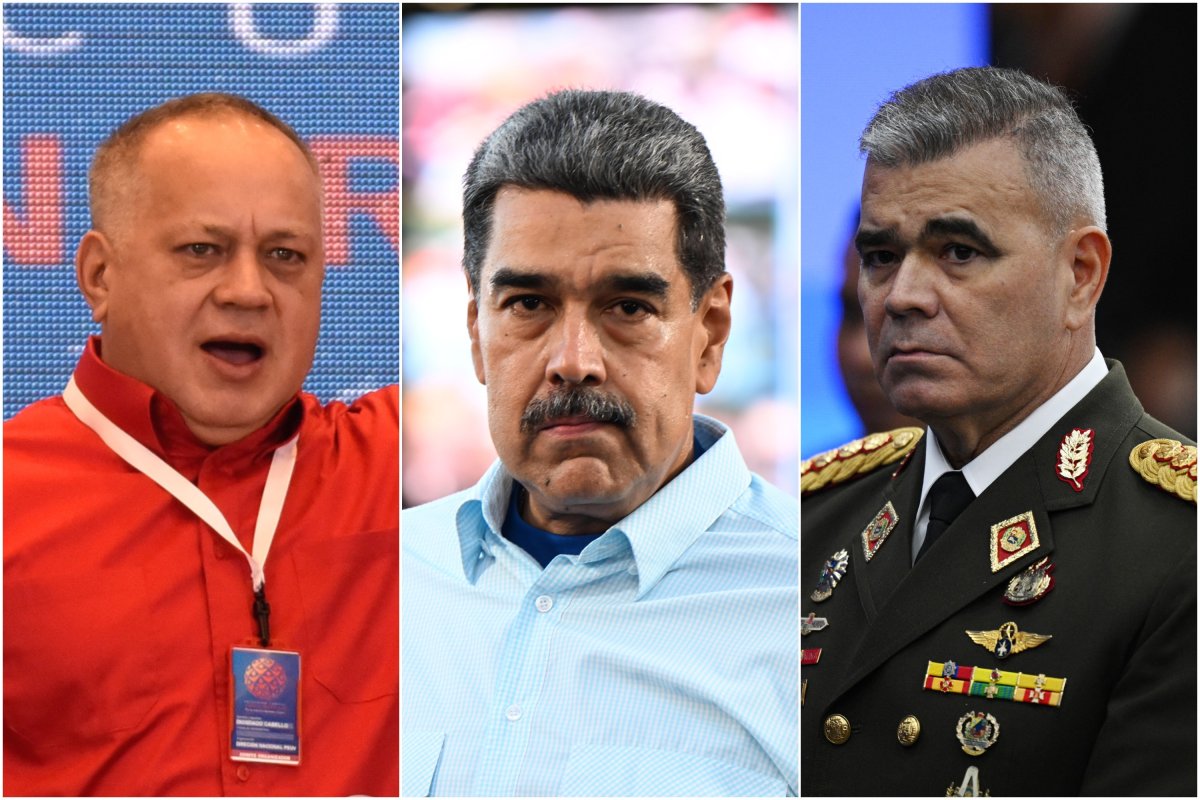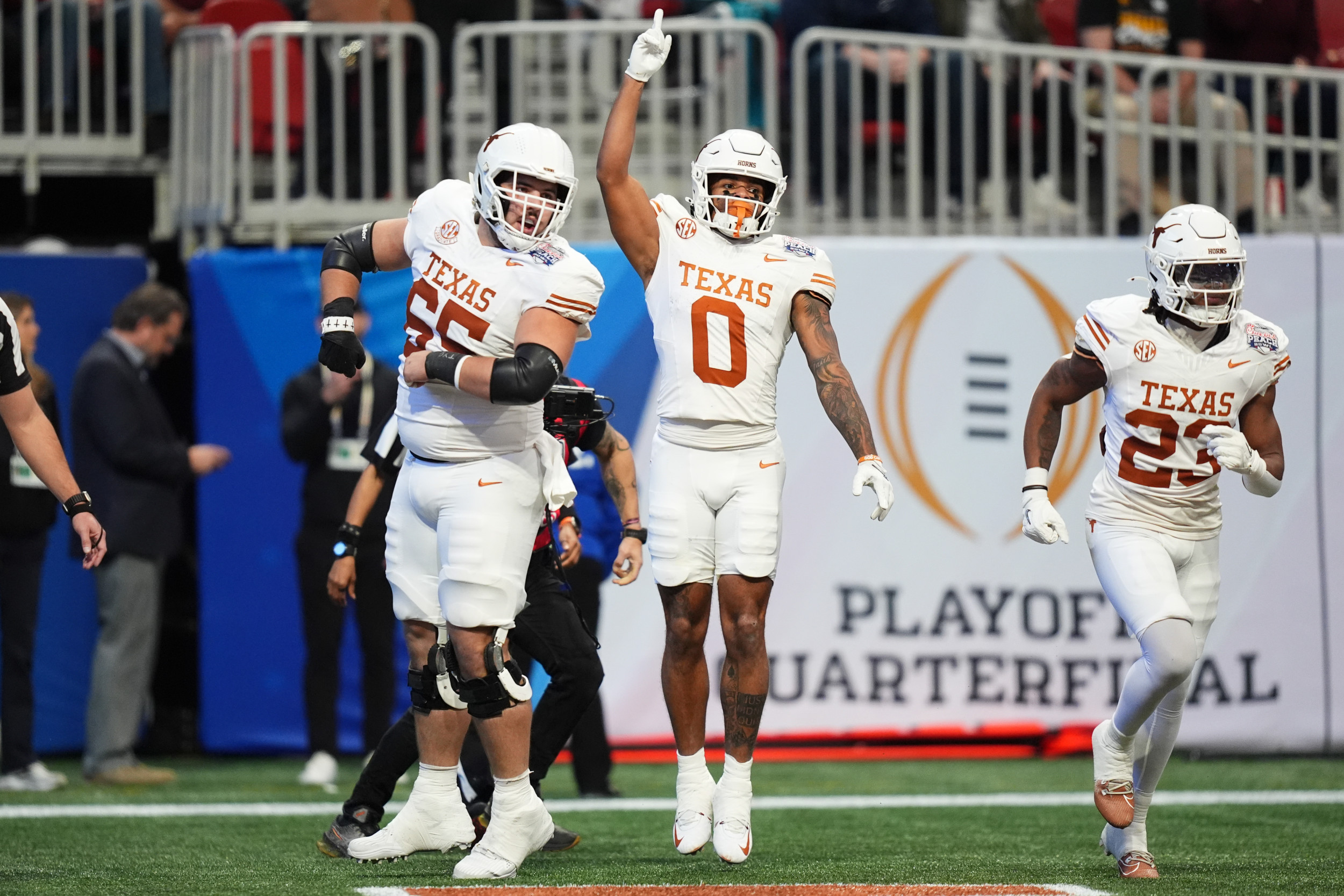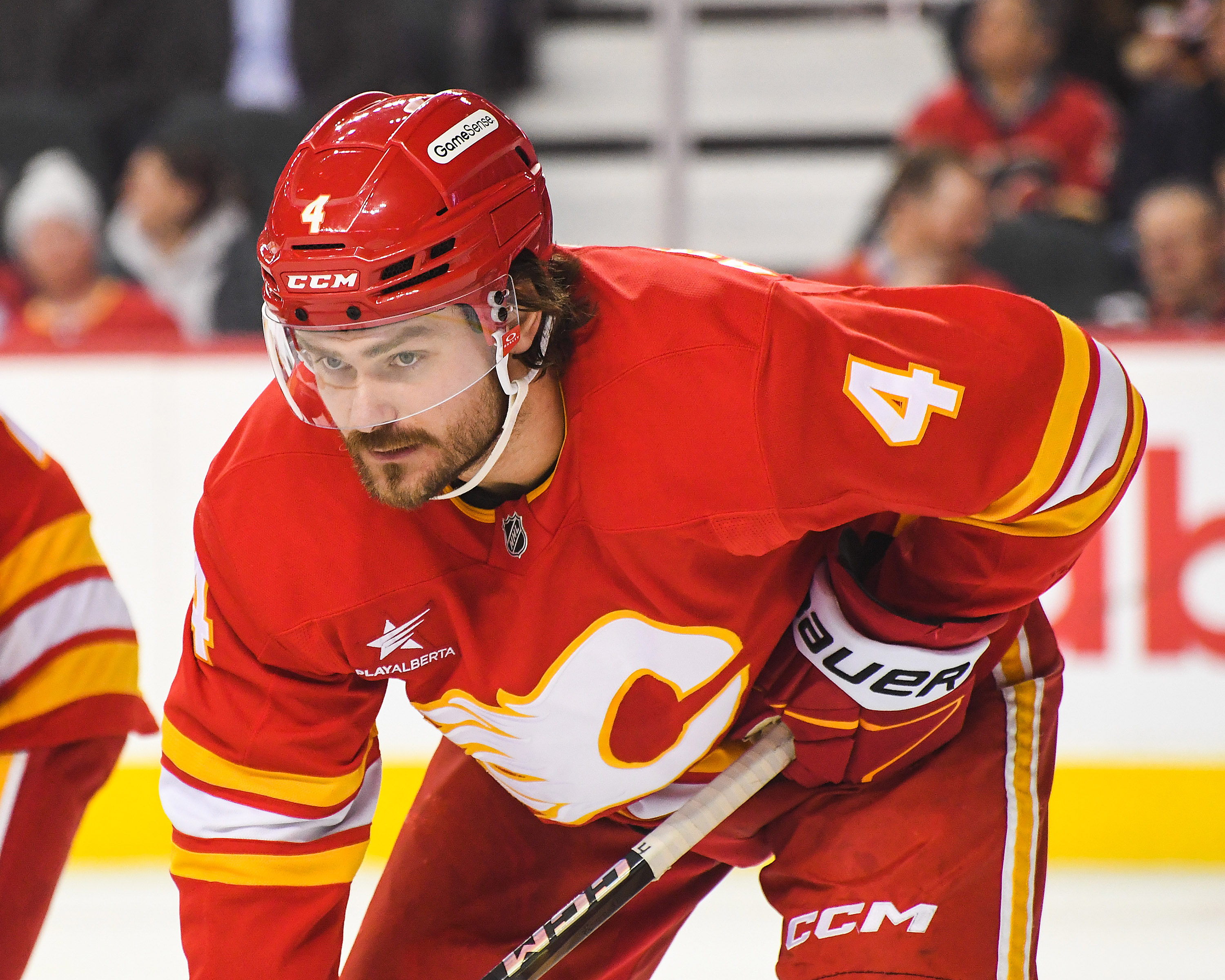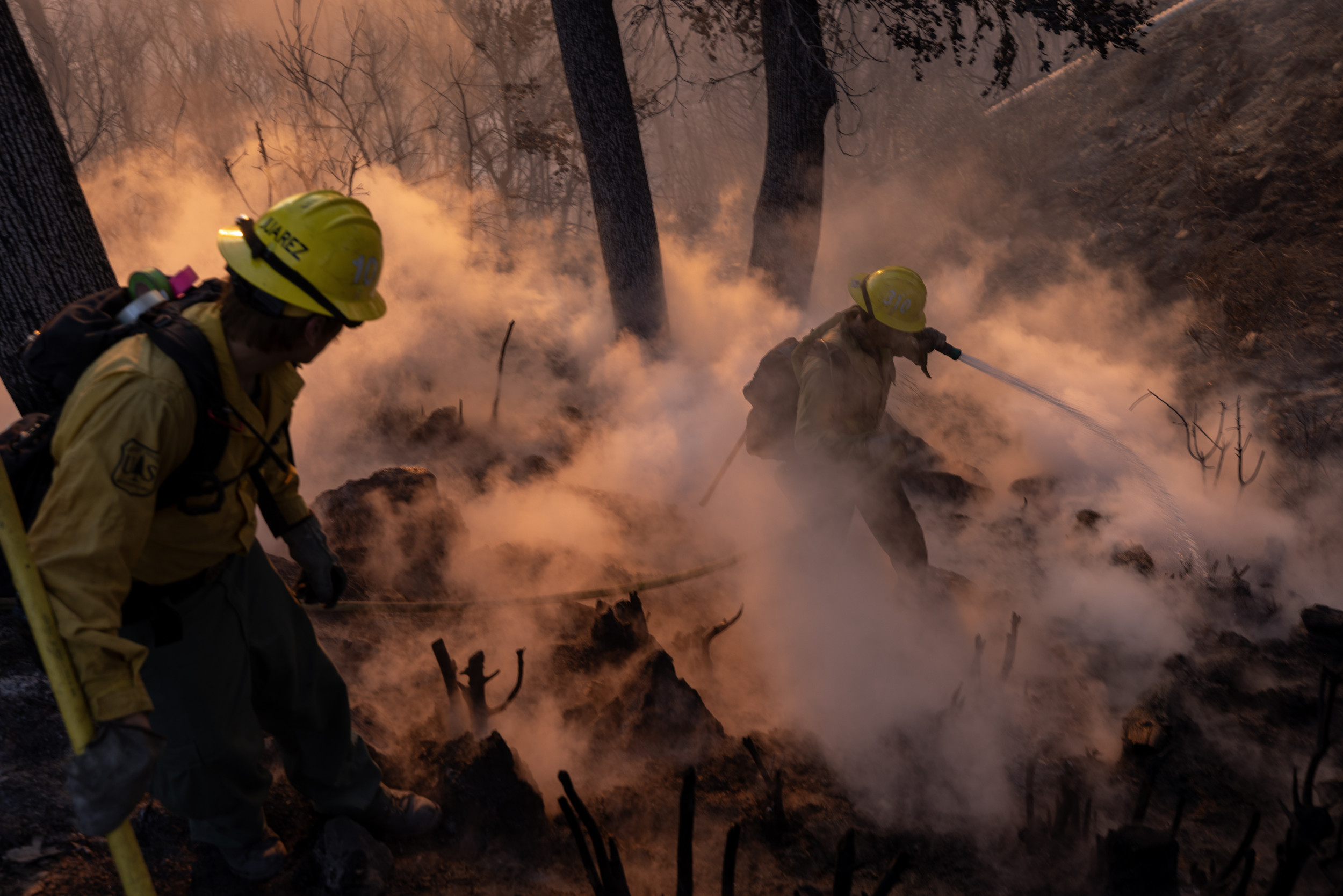The United States has placed substantial bounties on several high-ranking Venezuelan officials, accusing them of crimes ranging from narcotics trafficking to undermining democracy. These figures include President Nicolás Maduro and key members of his government, as the U.S. ramps up pressure on the Venezuelan regime.
Why It Matters
Maduro was sworn in for a third term as Venezuela's president on Friday, following an election marred by allegations of widespread fraud and suppression of opposition candidates. The United States, along with several allies, has refused to recognize the election results, instead acknowledging opposition leader Edmundo González Urrutia as the legitimate president-elect.
In response to the disputed election, the U.S. has increased bounties on high-ranking officials and imposed a series of sanctions targeting Maduro's inner circle and state-owned enterprises. The U.S. alleges that Maduro and his associates have used their positions to engage in illicit activities, contributing to Venezuela's economic and humanitarian crises.
Who Are the High-Ranking Venezuelan Politicians on US Bounty List?

Nicolás Maduro: $25 Million
Maduro tops the U.S. bounty list with a $25 million reward for information leading to his arrest or conviction. Initially set at $15 million in 2020, the reward was increased on Friday as he was being sworn in, following allegations of fraudulent elections last July. According to U.S. officials, Maduro and his associates have continued their "repressive actions" against the Venezuelan people.
"The United States, together with our like-minded partners, stands in solidarity with the Venezuelan people's vote for new leadership and rejects Maduro's fraudulent claim of victory," said Bradley T. Smith, Acting Undersecretary of the Treasury for Terrorism and Financial Intelligence.
Maduro, in power since 2013, is accused of leading a narco-terrorism conspiracy involving cocaine trafficking to the United States. He denies the charges and has often dismissed U.S. actions as part of a broader strategy to destabilize his administration.
Diosdado Cabello: $15 Million
Cabello, Venezuela's Minister of Interior, Justice, and Peace, is another prominent figure on the U.S. bounty list with a $15 million reward. Cabello is alleged to have significant involvement in narcotics trafficking, operating within the so-called "Cartel of the Suns," a network accused of controlling drug routes through Venezuela.
Cabello, who wields significant influence within the Venezuelan government, has long been a staunch ally of Maduro and a vocal critic of U.S. foreign policy.
Vladimir Padrino: $15 Million
Padrino, Venezuela's Defense Minister, also has a $15 million bounty on his head. Padrino is accused of facilitating the drug trade and using his military position to secure routes for narcotics shipments. He remains a central figure in Maduro's administration, ensuring military loyalty amid widespread domestic and international criticism.
Other Sanctioned Officials
In addition to increasing bounties on Maduro, Padrino and Cabello, the U.S. imposed sanctions on several other high-ranking Venezuelan officials. These individuals were cited for their roles in perpetuating repression, supporting the Maduro regime, and committing human rights abuses. These measures are part of a broader strategy aimed at targeting key figures within Venezuela's government.
Hector Andres Obregon Perez: As the president of PDVSA, Venezuela's state-owned oil company, Obregon is accused of enabling a primary income source for Maduro's regime. PDVSA has been central to sustaining the government's operations amid widespread economic and humanitarian crises.
Ramon Celestino Velasquez Araguayan: Velasquez serves as the Minister of Transportation and leads CONVIASA, the state-owned airline. The U.S. alleges his leadership supports Maduro's government through logistical and operational means, further entrenching its power.
Felix Ramon Osorio Guzman: A former military leader and current Vice Minister of Interior Policy and Legal Security, Osorio has been linked to repression tactics employed against opposition groups and protesters.
Danny Ramon Ferrer Sandrea: As Vice Minister of Penal Investigations, Ferrer oversees police units accused of systematic repression and human rights abuses, including unlawful detentions and crackdowns on dissent.
Douglas Arnoldo Rico Gonzalez: The director of CICPC, Venezuela's national police agency, Rico is alleged to have directed actions resulting in human rights violations, including extrajudicial killings and arbitrary arrests.
Jhonny Rafael Salazar Bello: The deputy director of CICPC, Salazar has been implicated in overseeing operations linked to reported human rights violations following the contested election.
Manuel Enrique Castillo Rengifo: As the Deputy Commander of CEOFANB, the military's strategic operations command, Castillo is accused of leading efforts to suppress protests and detain dissenters through military force.
Jose Ramon Figuera Valdez: The commander of ZODI for the Capital District, Figuera has been linked to a series of detentions and violent crackdowns on protesters, contributing to reported deaths and injuries among opposition groups.
Broader Implications
The U.S. State Department has tied these bounties to its broader Narcotics Rewards Program, which targets individuals linked to international drug trafficking networks. The program aims to disrupt illicit operations while signaling support for democratic movements within Venezuela.
Visa restrictions have also been imposed on Maduro-aligned individuals for their roles in "undermining the electoral process or in acts of repression in Venezuela." Similar actions have been taken by the United Kingdom, Canada, and the European Union.
What People Are Saying
Bradley T. Smith, Acting Under Secretary of the Treasury for Terrorism and Financial Intelligence, in a press statement: "Since last year's election, Maduro and his associates have continued their repressive actions in Venezuela. The United States, together with our likeminded partners, stands in solidarity with the Venezuelan people's vote for new leadership and rejects Maduro's fraudulent claim of victory."
Anthony Blinken, US Secretary of State, in a press release: "The United States rejects the National Electoral Council's fraudulent announcement that Maduro won the presidential election and does not recognize Nicolás Maduro as the president of Venezuela".
What's Next
The announcement of increased bounties comes amid ongoing unrest in Venezuela, with opposition leaders continuing to contest Maduro's legitimacy. The international community, including organizations like the Carter Center, has called for transparent and fair elections to resolve the country's ongoing political crisis.









![[SEE IT] Joakim Noah Opens Up About Rivalry with LeBron: ‘I Had Enough’ of His ‘Arrogance’”](https://thesource.com/wp-content/uploads/2025/01/Screen-Shot-2025-01-10-at-2.57.18-PM.png)

![[WATCH] Jim Jones Sees Drake’s Legal Moves Against UMG and Spotify as ‘Power Moves’](https://thesource.com/wp-content/uploads/2025/01/Screen-Shot-2025-01-10-at-2.46.43-PM.png)








 English (US) ·
English (US) ·